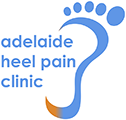Many of our clients in our clinic often ask if they should get an injection for Plantar Fasciitis. So we thought it would be a good idea to bust a few myths and bring a bit of clarity to ‘Plantar Fasciitis other wise know as Heel Spurs and the use of cortisone and steroid injections.
Heel pain is the most common condition that presents to our clinic. We see around 50 cases per day. Traditionally heel pain has been broadly diagnosed as Plantar Fasciitis.
But is your heel pain really Plantar Fasciitis?
The suffix ‘itis’ (as in Plantar Fasciitis) implies inflammation of the fascia. We now know that inflammation is often not the only the cause of pain in the plantar fascia.
So, according to the most recent research, we know that the using the term ‘Plantar Fasciitis’ for all plantar heel pain is, at best, likely misleading and, at worst, just incorrect.
A more accurate description of your heel pain symptoms would be either ‘Plantar Fasciopathy’, ‘Plantar Fasciosis’ or Plantar Heel Pain to describe pain in the heel.
These terms encompasses a variety of pathological and anatomical features relating to heel pain. These include plantar fascia inflammation, degeneration or thickening, heel fat pad pathology, nerve irritation, and heel spurs.
Heel pain will typically fall into two categories either reactive or degenerative.
REACTIVE implies an acute response to a stimulus such as changing your shoes, starting a new physical activity like boot-camp or joining the gym. This can be inflammatory. DEGENERATIVE refers to the slow breakdown of fascial tissue over time.
Historically, cortisone has been used as a steroid injection to treat inflammation.
But does the science support this?
Studies have failed to find any evidence showing any substantial clinical benefit of using cortisone (steroid injection) in patients with heel pain / plantar fasciitis. A handful of studies found that the injection reduced for 4 weeks, but then the majority of patients reported that it was the same if not worse than before.
Not only that, the potential harms associated with having a steroid injection weren’t great.
Complications such as: Severe Injection-site pain, Infection, Subcutaneous fat atrophy, Skin pigmentation changes, Plantar fascia rupture, Peripheral nerve injury, Muscle damage.
As a result any perceived benefit associated with cortisone injections for heel pain really does not offset the risk for adverse outcomes, including long-term disablement in our opinion.
So where does this leave us?
Well since we know that Plantar Heel Pain is not always inflammatory AND the potential benefits of using cortisone don’t offset the risks then typically you should NOT have an injection in the vast majority of cases!
At our clinic we have developed excellent non invasive treatment programs for Plantar fasciitis (heel pain) over the last 15 years. Whether through consultation with a physiotherapist or a podiatrist, we utilise the best evidence based treatment methods and the latest in cutting edge technology to successfully treatment a large number of patients who have been searching for a solution to their pain for a long time.
If you are suffering give us a call on 83570700 and let us help you.

